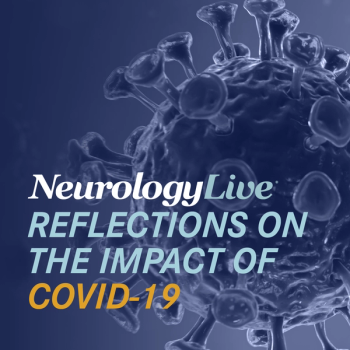
The findings suggest and confirm previous studies that suggested plasma p-tau181 may be used as a measure to monitor Alzheimer disease progression in clinical practice and treatment trials.

Marco Meglio, Assistant Managing Editor for NeurologyLive, has been with the team since October 2019. Follow him on Twitter @marcomeglio1 or email him at [email protected]

The findings suggest and confirm previous studies that suggested plasma p-tau181 may be used as a measure to monitor Alzheimer disease progression in clinical practice and treatment trials.

The Pfizer candidate PF-06939926 has also received fast track, orphan drug, and rare pediatric disease designations from the FDA.

The clinical fellow at Massachusetts General Hospital detailed his research on neurology resident EEG education, and the increased need for more consistency throughout programs.

The hATTR amyloidosis treatment demonstrated an encouraging safety and tolerability profile, with a new drug application submission expected to come this year.

The phase 4 study will use total score on the Hammersmith Infant Neurological Examination Section 2 motor milestones as the primary end point over a 2-year period.

The percentage of women who had ≥1 change in an antiepileptic drug dose or an overall dose increase during pregnancy and a decrease in dose during the postpartum period was higher among pregnant women than controls.

Although the percentage of total seizures arising from REM was low, it is notable that 2 out of 26 patients (7.7%) had REM-onset seizures.

The Expanded Access Program will offer treatment for patients with ALS who have completed the phase 3 clinical trial and will not interfere with data or regulatory timelines.

Individuals whose mothers had pregestational diabetes mellitus had a statistically significant 2.3-fold increased risk of developing multiple sclerosis.

Raymond Sanchez, MD, chief medical officer of Cerevel Therapeutics, discussed tavapadon, a drug intended to treat Parkinson disease that is currently being tested in a slew of clinical trials.

Neuronaute consists of a smart shirt and smart cap containing biosensors that monitor physiological characteristics, such as muscle activity and heart and respiratory rate.

Objective reduction in tremor was accompanied by improvement in specific motor tasks and a larger proportion of patients in the botulinum neurotoxin group reporting a global subjective improvement in symptoms.

In addition to the device showing a safe profile, it helped patients with pain relief from their migraine and increased functional ability.

The agent will aim to be the first and only FDA-approved liquid formulation of topiramate, with a PDUFA date set in Q3 of 2021.

Jennifer Robblee, MD, neurologist, Barrow Neurological Institute, shares her takeaways about how migraine care shifted this year and how it may continue to shift going forward.

NeurologyLive compiled a number of interviews and conversations with leaders within the neurology community to discuss the neurologic symptoms associated with COVID-19.

NeurologyLive compiled a number of interviews and conversations with leaders within the neurology community to discuss how the pandemic affected mental health, specifically at an in-hospital setting.


NeurologyLive conducted a number of interviews and conversations with leaders within the neurology community to discuss the resources and tools used to adapt to the COVID-19 pandemic.

NeurologyLive conducted a number of interviews and conversations with leaders within the neurology community to discuss whether the COVID-19 pandemic forced clinicians to change treatment regimens or prescriptions.

NeurologyLive conducted a number of interviews and conversations with leaders within the neurology community to assess how the COVID-19 virus affected the pathology of neurologic disorders.

The assistant professor of neurology and anesthesiology at Harvard Medical School detailed the findings of a phase 2 trial using ezogabine, a drug once FDA-approved to treat epilepsy, in patients with ALS.

The phase 2b/3 study will enroll 160 patients with either familial or sporadic ALS with a primary end point in change from baseline on Revised Amyotrophic Lateral Sclerosis Functional Rating Scale score at 24 weeks.

There were no observations of clinical resistance or secondary treatment failure due to neutralizing antibodies, supporting the importance of the treatment’s unique purification process through XTRACT technology.

NeurologyLive compiled a number of interviews and conversations with leaders within the neurology community to discuss how they adopted new methods of care throughout the COVID-19 pandemic.

NeurologyLive compiled a number of interviews and conversations with leaders within the neurology community to discuss how the COVID-19 pandemic has affected telemedicine.

This specialty series is dedicated to assessing the impact COVID-19 has had on the quality of life of patients with neurological disorders and the clinicians who were forced to adapt during this unique era of medical history.

There were significantly fewer patients reaching severe dementia stage with masitinib 4.5 mg/kg/day compared with placebo after 24 weeks of treatment.

Results of the phase 2 study support continued dose escalation of SRP-5051 and further clinical development.

Inclusion of measures of other factors that may influence modified cerebral Functional System Score, such as pain, and sleep quality and insomnia, were noted for future research.